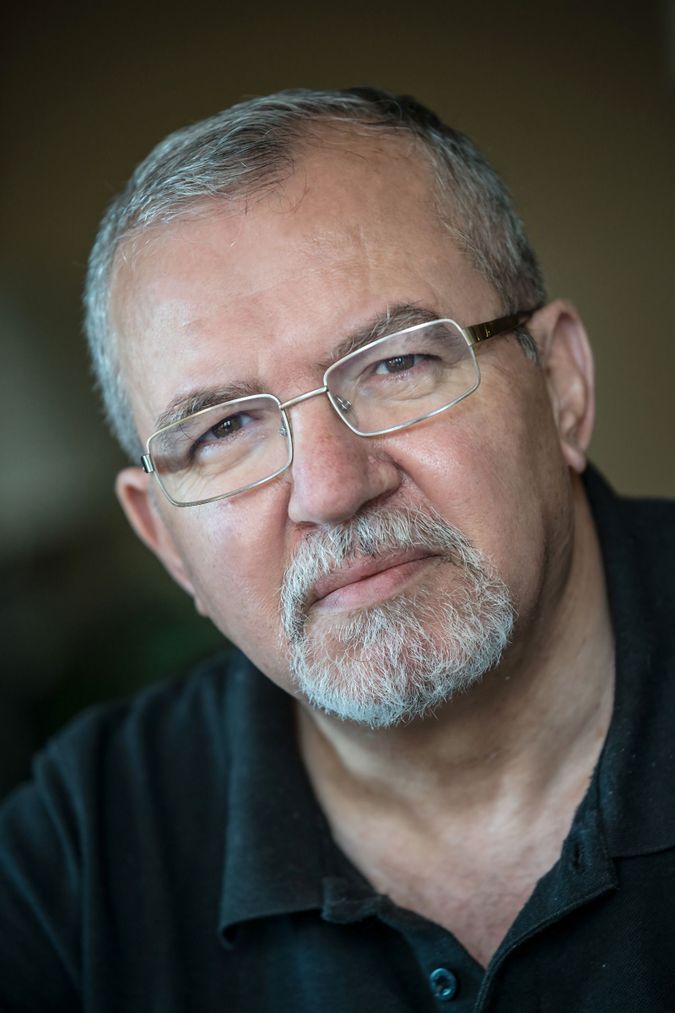Rabin’s Jewish-Arab alliance was a democratic revolution. We must reclaim it.

Rabin sought an Israeli majority, not a Jewish majority Image by Yehuda Blum
This essay is part of a collection of essays commemorating the assassination of Yitzhak Rabin. The collection was produced in partnership with BINA: The Jewish Movement for Social Change.
Yitzhak Rabin brought about two fundamental changes in age-old conventions in Jewish Israeli society. In 1993, the Government of Israel recognized the PLO as the legitimate representative of the Palestinian people. Not long after, Rabin relied on the votes of the Arab members of the Knesset in order to ratify the Oslo Accords.

Odeh Basharat
The British Zionist author Israel Zangwill is often credited with saying with regard to the land of Palestine that it is “a land without a people for a people without a land.” The actions of the Zionist movement befitted Zangwill’s words, starting with the mass expulsion of Palestinians in 1948, while the State of Israel confiscated hundreds of thousands of dunams of land owned by Israel’s Arab citizens. The writer of these lines is himself the son of a family expelled in 1948 from the village of Ma’alul. It is still forbidden today for members of the village to return to their land and their homes, which have meanwhile been destroyed.
And so, Rabin brought about a fundamental change when his government recognized the Palestinian nation and its leadership. This change was the result of a number of processes, the most essential of which was the transformation that took place within the Palestinian national movement, which suffered a major loss in 1948. The Palestinian cause was then seen as a problem of refugees, not the cause of a nation struggling for its freedom, independence and the building of its country. Over the years and under the most difficult conditions, the Palestinians managed to unite under the leadership of the PLO, and the organization earned recognition in the Arab world and the international community. In 1987, the First Intifada broke out in the territories occupied by Israel. The Intifada made the obvious clear: that occupation cannot last forever.
Within Israel itself, the weight of the Palestinian population in Israel made itself known, especially when the Oslo Accords were ratified, and the elected representatives of Israel’s Arab citizens in the Knesset balanced out the scales between the right-wing (led by Benjamin Netanyahu) who opposed the accords and the center and left-wing parties (led by Rabin). Thanks to this cooperation, an historic change took place in the direction of reconciliation between the two nations.
Thus, if we examine the toxic incitement that led to the assassination of Rabin in 1995, we can see that a critical element was the claim that the decision to ratify the Oslo accords was illegitimate because it depended on the votes of the Arab elected officials. According to voices on the far right, any fundamental decision in the state must be purely Jewish. In 1993 therefore, the ethnic state in Israel was established declaratively, and no longer just mentally. This was the effect of Rabin’s assassination.
The Israeli right-wing understood that a fundamental change like Oslo was only possible because of the strength and power of Israel’s Arab population. The right-wing therefore set out on an incitement campaign to delegitimize this entire population. This campaign has reached an absurd climax today wherein the current prime minister, Benjamin Netanyahu, cannot be deposed because certain elements of the opposition refuse to align themselves with the Arab Joint List, and thus are unable to attain the majority required to unseat Netanyahu. All this because of the demonization of the Arab population of Israel.
Thanks to incitement and the prime minister’s penchant for labeling Arabs “supporters of terrorism,” over a year after three serious indictments have been filed against him, Netanyahu continues to govern. This, despite all his failures in managing the coronavirus crisis, despite manipulating the crisis to delay his own trial, the attacks he and his supporters are waging against the entire legal system, the dark atmosphere on the street that at any moment can turn into violence or even political murder, and more.
Despite all this, the fear that the right-wing stokes over any possible collaboration with the Joint List continues to prevent a majority from deposing Netanyahu.
Today, amid the growing protests against Netanyahu’s continued reign, there is a growing awareness that without a Jewish-Arab alliance, it will be impossible to cure this country that is sinking deeper into division, incitement, and attacks on democracy.
And thus, we return even more so to the equation that Rabin put forth, that a true democracy must be based on universal values; that every citizen must have an equal right to take part in determining the future of the state, regardless of “religion, race or sex,” as is written in Israel’s Declaration of Independence.
Such is a state that operates on the basis of an Israeli majority, and not a Jewish ethnic one.
Odeh Basharat is an Arabic and Hebrew-language journalist, novelist and political commentator. He currently writes for Haaretz.






















